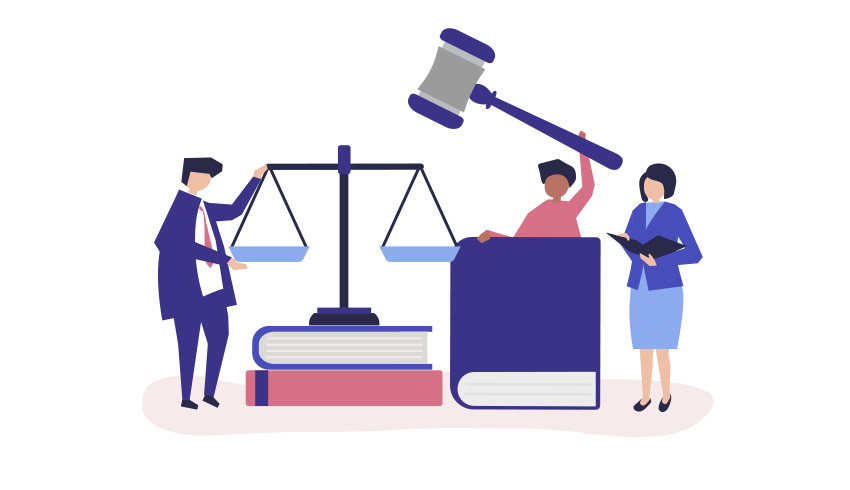In today’s digital world, every click, like, and online search leaves a trace. This data is valuable—not just to you, but to businesses, advertisers, and sometimes even hackers. But who gets to decide what happens to your data? In the United States, the answer is complicated, and it’s changing fast. Let’s dive into the world of U.S. privacy laws, why they matter, and what you need to know in 2025.
Why Privacy Laws Matter

Every time you use a website, app, or smart device, you share information about yourself. This could be your name, email, location, what you buy, or even your favorite ice cream flavor. Companies use this data to improve services, show you ads, or sell products. But sometimes, data gets misused or stolen. That’s why privacy laws exist—to protect your information and give you some control over it.
The Patchwork of U.S. Privacy Laws
Unlike some countries that have one big privacy law, the U.S. has a patchwork system. This means different states have different rules, and there’s no single law that covers everyone, everywhere.
-
As of 2025, 20 states have their own comprehensive privacy laws, with more on the way.
-
In 2025 alone, eight new state laws are taking effect, adding to a total of 16 comprehensive state privacy laws by the end of the year.
Key States and Their New Laws
Here’s a quick look at some states with new privacy laws in 2025:
| State | Effective Date |
|---|---|
| Delaware | January 1, 2025 |
| Iowa | January 1, 2025 |
| Nebraska | January 1, 2025 |
| New Hampshire | January 1, 2025 |
| New Jersey | January 15, 2025 |
| Tennessee | July 1, 2025 |
| Minnesota | July 31, 2025 |
| Maryland | October 1, 2025 |
Each law has its own rules about what businesses must do to protect your data and what rights you have as a consumer.
What Do These Laws Actually Do?
Most state privacy laws have some things in common:
-
Right to Know: You can ask companies what data they have about you.
-
Right to Delete: You can ask them to delete your data.
-
Right to Opt-Out: You can say “no” to your data being sold or shared.
-
Right to Correct: You can ask for errors in your data to be fixed.
-
Right to Data Portability: You can get a copy of your data in a usable format.
These rights put more power in your hands, but they also mean businesses have to work harder to follow the rules.
Why So Many Different Laws?

You might wonder: Why doesn’t the U.S. just have one big privacy law? The answer is part history, part politics. While there have been efforts to create a federal privacy law, states have moved ahead on their own. Each state wants to protect its residents, but they have different ideas about how strict the rules should be.
This means companies that do business across the country have to follow a confusing mix of rules, depending on where their customers live.
How Do These Laws Affect You?
For most people, these laws mean:
-
You’ll see more privacy notices and cookie pop-ups on websites.
-
You may have more chances to control what data companies collect and how they use it.
-
If your data is misused, you may have more ways to complain or even sue.
But here’s the catch: Only 3% of Americans say they really understand how these privacy laws work. That means most people aren’t sure what their rights are or how to use them.
What About Businesses?
For businesses, the new laws mean more work. They have to:
-
Update privacy policies to explain what data they collect and why.
-
Get clear permission before collecting certain types of data.
-
Make sure they can find, delete, or correct your data if you ask.
-
Train employees to handle data safely.
-
Watch out for new rules about things like artificial intelligence (AI) and automated decision-making.
If they don’t follow the rules, they could face fines or lawsuits. In 2024 alone, there were nearly 2,000 data privacy lawsuits in federal courts, and the number is still rising.
Privacy and the Internet: What’s Changing?
Privacy laws don’t just protect your data—they also change how the internet works. For example:
-
Websites must get permission before tracking you with cookies or collecting your info for ads.
-
Search engines and social media sites are focusing more on user privacy.
-
Companies are collecting less data, or making data anonymous, to reduce risks.
This can be good for your privacy, but it also means you might see less personalized ads or have to click through more pop-ups.
SEO and Privacy: A New Challenge

SEO (Search Engine Optimization) is how websites make sure you find them on Google or Bing. Many SEO strategies rely on user data—like what you search for, where you live, or what you click on.
With new privacy laws, websites have to:
-
Ask for your permission before collecting data.
-
Collect only the data they really need.
-
Make privacy policies easy to find and understand.
-
Use tools to let you control which cookies you accept.
If they don’t, they risk losing your trust—and their spot in search results.
What Are People Searching For?
Recent trends show that Americans are searching for:
-
“What are my data privacy rights?”
-
“How do I stop companies from selling my data?”
-
“What is the best way to protect my personal information online?”
-
“Which states have the strongest privacy laws?”
-
“How do I delete my data from a website?”
This shows a growing awareness and concern about privacy, even if most people still feel confused by the rules.
The Role of AI and New Technologies
A big topic in 2025 is how privacy laws will handle AI. States are starting to write rules about how companies can use AI to make decisions about you—like approving a loan or showing you ads. These rules are still new, but expect more changes as technology evolves.
Looking Ahead: Will There Be a National Law?
Many experts believe the U.S. will eventually have a national privacy law, but it’s not here yet. Until then, expect more states to pass their own laws, making the privacy landscape even more complex.
Tips for Protecting Your Data in 2025
-
Read privacy notices: They might be boring, but they tell you what’s happening to your data.
-
Use privacy settings: Most websites and apps let you control what you share.
-
Be careful with what you share: Only give out information you’re comfortable with.
-
Ask questions: If you’re not sure how your data is being used, ask the company.
-
Know your rights: If you live in a state with a privacy law, learn what you can do.
Your Data, Your Future

As privacy laws keep changing, one thing is clear: Your data is valuable, and you have the right to know—and decide—what happens to it. The rules may be complicated, but the goal is simple: to give you more control and keep your information safe.
Businesses, lawmakers, and technology leaders are all part of this conversation. The challenge for the future is to make privacy protection strong, simple, and fair for everyone—no matter where you live or how you use the internet.
The story of privacy in America is still being written. Stay informed, stay curious, and remember: your data, your rules—at least, that’s the direction the country is heading.
With inputs from agencies
Image Source: Multiple agencies
© Copyright 2025. All Rights Reserved Powered by Vygr Media.


















